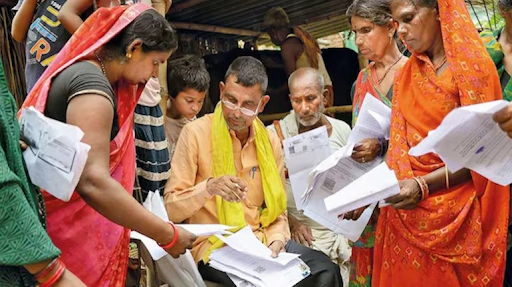



The Supreme Court is reviewing the constitutionality of unopposed elections, questioning their impact on voter rights and the denial of NOTA. While rare nationally, such wins bypass electoral validation, prompting legal challenges over democratic principles and the Representation of the People Act's Section 53(2), especially amid evolving electoral standards.

Copyright infringement not intended
Picture Courtesy: INDIAN EXPRESS
The Supreme Court is examining the constitutionality of unopposed election victories, focusing on whether they violate voters' rights by denying the NOTA option.
Section 53(2) of the Representation of the People Act, 1951 states that if the number of candidates equals the number of seats to be filled, the returning officer shall immediately declare those candidates to be elected. This means:

The Vidhi Centre for Legal Policy has challenged Section 53(2) as unconstitutional on the following grounds:
Supreme Court's views
|
"Why cannot there be an election if there is only one candidate? Nobody should enter Parliament by default." - Justice Surya Kant |
In 2013, the Supreme Court recognized NOTA as an expression of voter dissent in the case People's Union for Civil Liberties v/s Union of India. The Court held that:
NOTA's Applicability to Unopposed Elections

Election Commission's Stance
The Election Commission of India (ECI) has defended the current system in its affidavit to the Supreme Court: Key Arguments by ECI
While unopposed elections are rare in Lok Sabha, they occur more frequently in state assemblies due to:
Must Read Articles:
NOTA enables voters to reject all candidates
Source:
|
PRACTICE QUESTION Q. With rising concerns over the misuse of social media and paid news during elections, analyze the role of the Election Commission of India (ECI) in regulating digital platforms without compromising democratic freedoms. 150 words |



© 2026 iasgyan. All right reserved